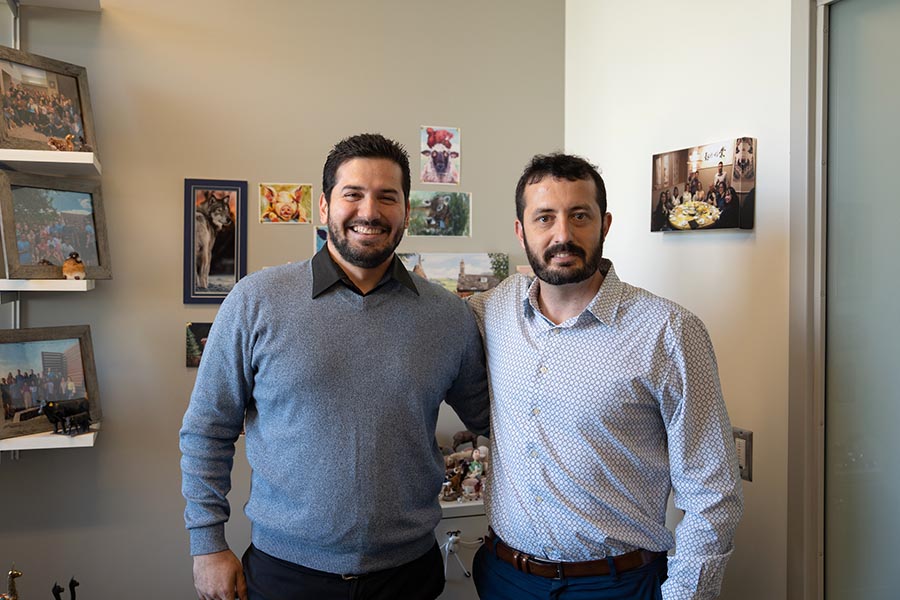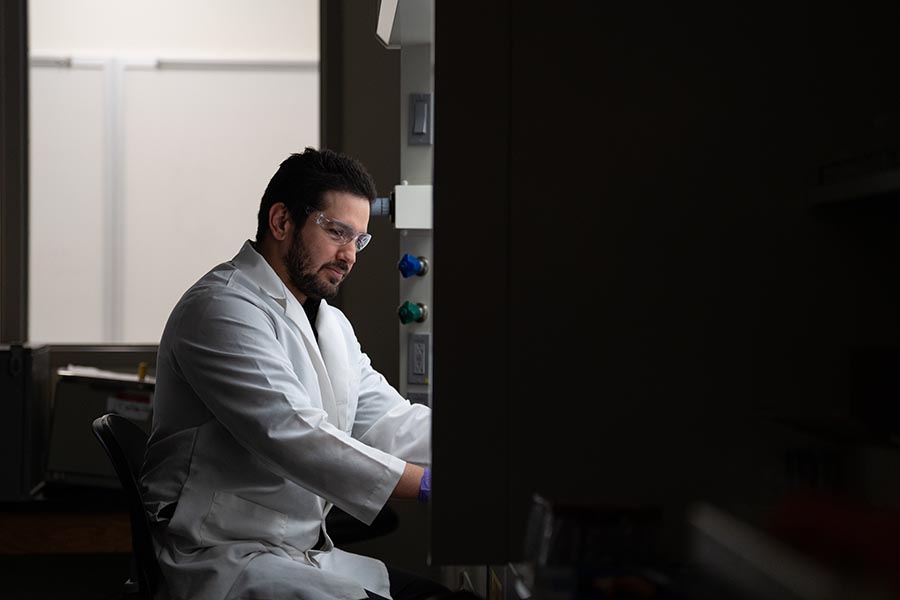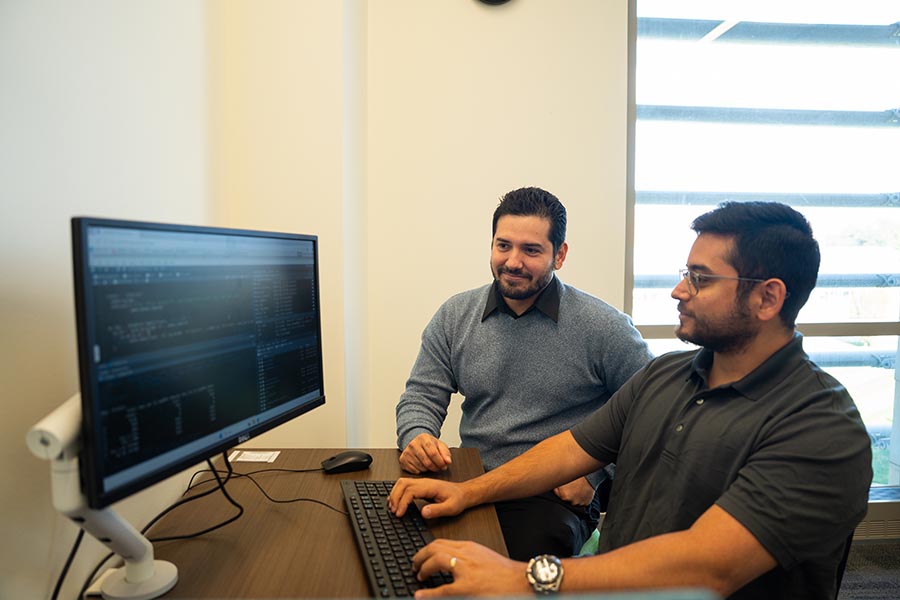Rick Hernandez - Graduate Ag Research Spotlight
I really like teaching. Seeing undergraduates presenting their posters and research is really fulfilling.
- Rick Hernandez, Animal Sciences
The student
The son of a goat farmer growing up in the city of Cúcuta, in northeastern Colombia, Rick Hernandez was always an animal lover. Whenever he’d see a stray dog on the street, he’d beg his mother to let him bring it home.
“My mom always said ‘oh, ok, wait until you’re a grownup,’” he says.
When he started thinking about veterinary medicine as a career, she suggested human medicine instead. So Hernandez applied to college programs in both, figuring he’d let fate decide. Fate was on the side of the dogs: Hernandez was accepted into the veterinary program. After graduation, he worked in a small animal ER for five years. But, wanting a bit more intellectual stimulation, he decided to do a master’s in veterinary sciences, focusing on livestock welfare and behavior. His life would never be the same again.
“Everything changed,” he says. “I was like, ‘this is my thing now.’”
After winning a thesis award, he applied for a Fulbright, and won a full ride to a US PhD program. He interviewed with professors from several universities, but chose Purdue because of Associate Professor Luiz Brito in Animal Sciences. While other professors made him feel like he was auditioning, Brito made it clear that Hernandez had skills he wanted.
“I felt like a football player in a recruiting session,” he jokes.
Hernandez arrived at Purdue in 2022. He’ll defend his dissertation in December.
The research
Hernandez studies how to improve livestock welfare through genomics. His dissertation focuses on improving heat stress resilience in pigs and walking ability in turkeys. Pigs aren’t good at dissipating their own body heat, he explains, which means piglets can easily overheat during transport. Turkeys have been bred to grow so big so quickly they may have trouble walking, which can make it difficult for them to reach food and water.
Hernandez worked on genomic analysis of turkeys with Purdue’s Associate Professor of Animal Sciences Marisa Erasmus, and studied pigs with Dr. Jay Johnson, formerly of the USDA’s Agricultural Research Service (USDA-ARS), now at the University of Missouri.
Hernandez spent his first two years taking classes and “living” at Purdue’s Animal Sciences Research and Education Center (ASREC), a 1,500 acres facility that includes six species units, the USDA-ARS Livestock Behavior Unit Lab, farm operations and a feed mill. Being able to do classes and research at the same time allowed him to finish his PhD much sooner than is typical.
Opportunities
As a grad student, Hernandez has had the opportunity to travel the US and Canada for conferences and more. He spent part of a summer at Georgia Tech doing genomics work, attended poultry and swine conferences in Kentucky and Missouri, participated in an American Veterinary Medicine Association animal welfare innovation competition in North Carolina, and presented research at a conference in Calgary.
He's also had the chance to mentor undergraduates, something that’s very important to him.
“I really like teaching,” he says. “Seeing undergraduates presenting their posters and research is really fulfilling.”
His fellow lab members are “extremely supportive,” he says. “Everything is possible within that group, because of that feeling of camaraderie. You can always lean on them.”
Future plans
After defending his dissertation, Hernandez hopes to find a postdoc position in animal welfare, with an ultimate eye towards a research professorship.
In the meantime, when he’s not working, he spends his time with his partner and baby.
“I would like to go out more,” he says, “But with writing my dissertation, I’m barely seeing the sun!”
And what of those dogs Hernandez begged his mother to let him bring home as a child? He eventually adopted a dog and two cats. But when he won the Fulbright, he couldn’t bring them to the US with him. So where did they go? To his parents’ house, of course.
“So see, she couldn’t get rid of them,” he jokes. “I’m an adult and I keep bringing animals home.”






